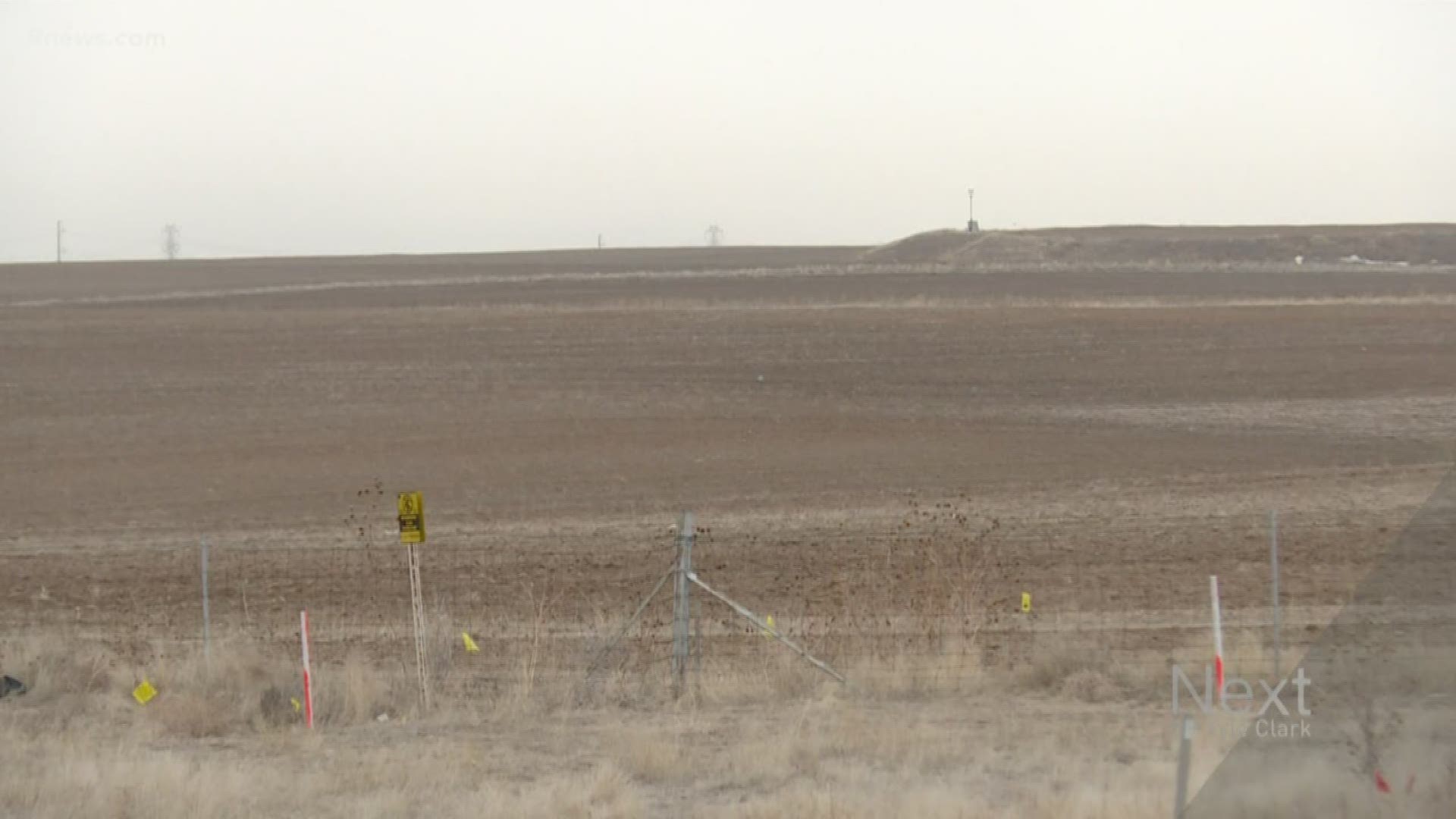DENVER — Eminent domain requires government to pay property owners for the land they take. What about when government gets in the way of the what's underneath a property owner's land?
"This is my, probably, fourth or fifth time that I have stood for mineral right owners and property right owners," said Colorado State Rep. Perry Buck (R-Windsor).
For the fourth or fifth time, Buck failed to convince the state legislature that local governments should reimburse mineral owners and oil and gas companies for moratoriums or fracking bans.
"It's a property right argument. If they're going to put a highway in your front yard because they believe that that highway is so important that they're going to put that highway in, you're going to be compensated for them using your front yard, so this is no different," said Buck.
"I don't think it's unreasonable for any citizen to request payment from a government when they deny or take your property away or do not allow you to use your property," said William Windler, a property and mineral rights owner in Aurora.
Windler's family has owned land in eastern Aurora for 140 years.
"In conjunction with the surface of the property, we've also owned mineral rights since, basically, statehood," said Windler.
He has agreements with two oil and gas companies for some of the minerals under his land, but he said the city has slowed the process for one of those agreements. And no matter how long it takes for the company to get all the permits and approvals, he's not owed a thing from the city, county or state.
"This is causing a lot of financial concerns with us because lawyers aren't cheap and working with the city to go through all of these processes, now dealing with an ever-increasing bureaucracy, you have the state, now you have the city, you have all of the other regulatory requirements that are in place and it seems sometimes one doesn't know what the other is doing," said Windler.
Would the bill have any more appeal if it only offered to compensate mineral rights owners and not the oil and gas companies missing out on the minerals?
It's not that easy to separate the two.
"The oil and gas companies have usually compensated, already, the people who own those mineral rights," said Buck.
Normally, an oil and gas company will enter into a lease for the mineral rights, providing the mineral rights owner money upfront, and then once the minerals are extracted, the mineral rights owner receives a percentage of the value of the minerals. Since the oil and gas company is already involved before the minerals are extracted, the company could also argue it is financially harmed by moratoriums or bans.
It's all moot, as the bill died 7-4 in committee. But, as Buck pointed out, it didn't go to the traditional "kill committee" called State, Veterans and Military Affairs. That's the bill most controversial bills go to be killed since the committee is stacked with lawmakers who aren't at risk of losing their seats during an election because of their vote. Instead, Buck's bill was heard in the House Energy and Environment Committee, where it still died.
SUGGESTED VIDEOS | Full Episodes of Next with Kyle Clark

